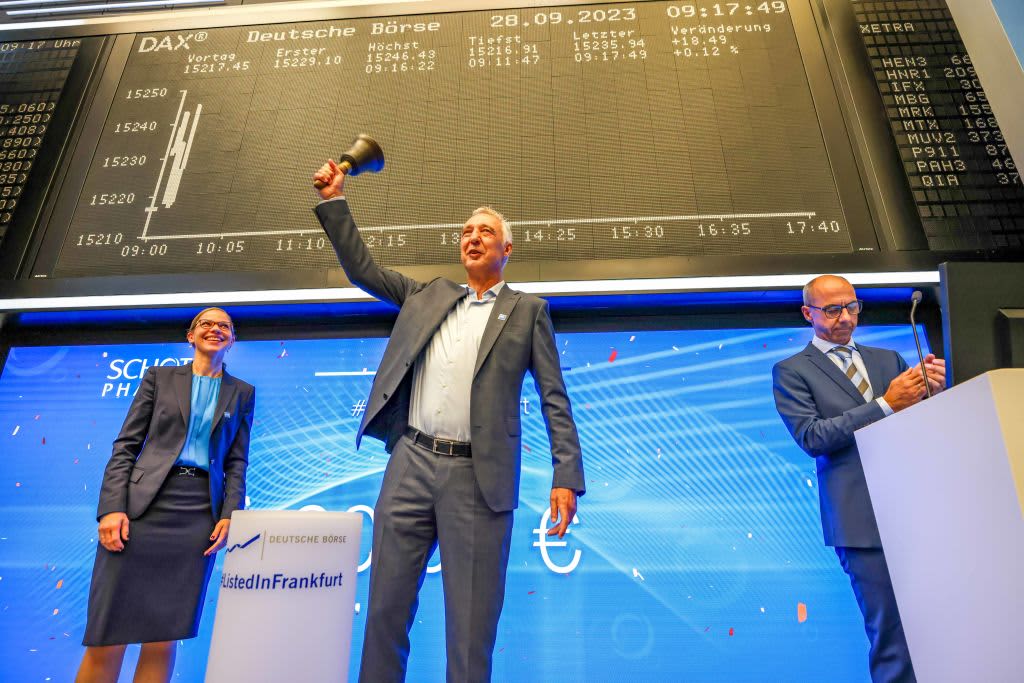
Schott Pharma debuted on the Frankfurt stock exchange on Thursday at 30 euros per share, trading well above analyst expectations. Shares of the company were up 10% in the first minutes.
The medical vial manufacturer set its final offer price at 27 euros ($28.37) per share Wednesday, after the company announced a range of between 24.50 and 28.50 euros on Sept. 18, giving it a valuation of up to 4.1 billion euros.
Going public with a part of the company’s shares was “a strategic decision,” Schott Pharma CEO Andreas Reisse told CNBC on Thursday.
“The main reason is that we have the possibility to access … the capital markets, that was the main driver for the decision,” Reisse said.
He added that Schott wanted to “have the same means as [the] competition,” even as there are no current plans for raising extra capital or moving ahead with mergers and acquisitions.
The company said it would list 34,641,362 shares in total, including over-allotments.
Schott Pharma said sales were up 8.4% year-on-year for the first nine months of the 2023 fiscal year, hitting 670 million euros ($704 million) over the period.
The company produces vials for mRNA vaccines, diabetes and obesity drugs and counts BioNTech and Moderna among its clients. Schott Pharma has production and sales units across 33 countries.
Schott Pharma produces in Germany and has “invested heavily” in the country, Reisse said, despite recent concerns over the welfare of Europe’s largest economy.
“Germany is definitely not the most easy place to produce … It has to be high value products and this has to be highly automized … Then I would say you can still invest in Germany, then it’s also a good place,” Reisse told CNBC.
The group said it will retain a majority stake in the company following the completion of the IPO and plans to use money raised through the listing to “further accelerate the Group’s growth and support its green transition.”
The Schott Pharma IPO is only the third new listing on the Frankfurt stock exchange this year and is expected to be one of the largest in the history of Germany.
This article was originally published on CNBC

